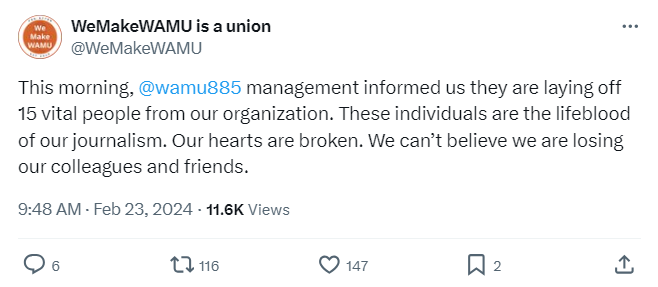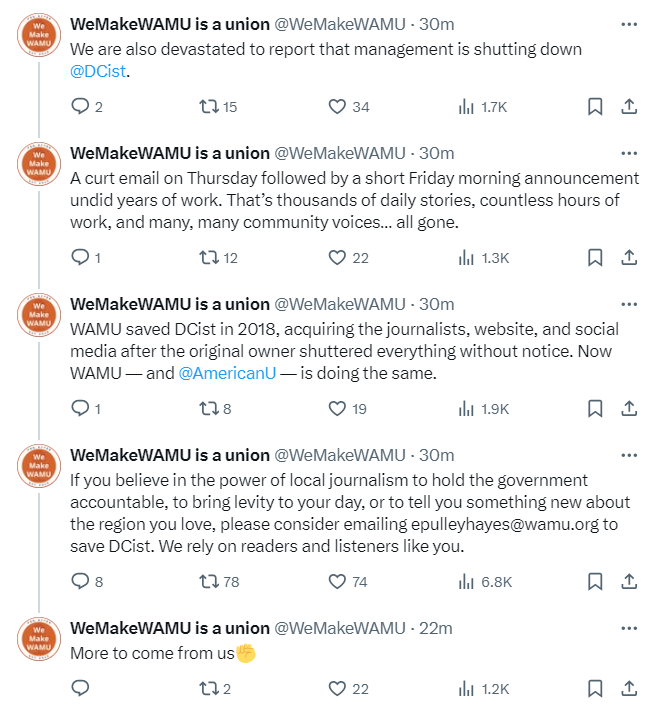By Adam Pagnucco.
Axios, the Washington Post, Washingtonian and Radio Insight are reporting that WAMU is laying off staff and shutting down DCist, which it bought in 2018. The news follows the circulation of an ominous email to staff last night warning them of a pending “new strategic framework.” WAMU’s staff union reacted with despair in the tweets reprinted below.


Given the email to staff, the news could have been worse. Axios reports that while 15 staffers will be laid off, WAMU plans to hire 10 others. WAMU’s general manager told Axios, “We’re making the choice to invest in what we’re better at than anyone else in this town, and that’s audio.” The station plans to launch a new local radio show and perhaps an app. Axios even reported that WAMU “plans to expand its politics unit across DC, Maryland and Virginia” to capitalize on the success of the Politics Hour, its flagship program with Kojo Nnamdi.
The survival of WAMU contrasts with the end of DCist. Founded in 2004, DCist at its height rivaled all other news organizations in the region with its granular reporting of events in the nation’s capital. Its demise is a serious loss for residents of D.C. and everyone else in the region who follows the city.
The events at WAMU occur in a context. WAMU is owned by American University (AU). The Eagle, AU’s student newspaper, has been reporting on the university’s financial problems dating back to the early days of the pandemic. In October, the Eagle reported that AU was facing a $30 million shortfall in the current fiscal year due to a pandemic-era student discount and below-target enrollments. This month, that shortfall increased by another $1.3 million due to even lower enrollment. Just this week, the Eagle reported that AU had hired Huron Consulting “to launch a strategic workforce assessment.” The Eagle recounted Huron’s history of recommending cuts and layoffs at other universities.
AU may be having problems but that is not necessarily true of WAMU, which publishes its own financial reports on its website. In its latest financial report, WAMU reported positive changes in net assets of $2,259,417 in FY23 and $6,316,782 in FY22. That suggests that cuts are not justified at WAMU if its finances are considered in isolation from those at AU.
Local media are under significant pressure right now. Both the Post and WTOP have engaged in recent buyouts, with the Post implementing layoffs as well. MoCo360 was just sold to a new owner that does not specialize in hard news. The Baltimore Sun was just bought by the chairman of a network of right-wing TV stations. The news at WAMU is less negative than many people expected, but the problems in regional media continue.
